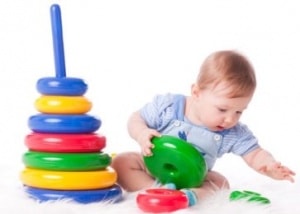How Puzzles Can Benefit Early Childhood Development
 Keeping your children busy and active with interesting things is always important, otherwise you will find them getting glued to the television watching cartoons or playing video games. It is parents who need to take care of the fact that their kids utilize the time playing games that can develop them both physically and mentally. Puzzles are always fun and interesting and the educational benefits of them are also many. You may have received puzzles on your baby’s first birthday as they are considered helpful for the child’s development. But the question is why?
Keeping your children busy and active with interesting things is always important, otherwise you will find them getting glued to the television watching cartoons or playing video games. It is parents who need to take care of the fact that their kids utilize the time playing games that can develop them both physically and mentally. Puzzles are always fun and interesting and the educational benefits of them are also many. You may have received puzzles on your baby’s first birthday as they are considered helpful for the child’s development. But the question is why?
Psychologists are of the opinion that a child’s brain usually develops till the age of 5 and that can be greatly influenced when the kid tries to manipulate things around him. His inquisitiveness to try and build new things makes him use his brain more. And puzzle for kids provide this key opportunity. Toddlers usually start with simple shapes and board cut outs. From there, they shift to something more complex that takes more consideration usually to jigsaw games of varying complexities.
The three basic advantages of puzzles for children :
Puzzles are always something more than bright colors and interesting shapes. They help your child develop three prime skills while playing
Physical skills

Hand eye coordination: Playing with a game that involves the process of trial and error require lots of hand and eye operation. A toddler trying to adjust the cut boards that do not fit will try it again and again, thereby involving actions related to what they see.
Gross motor and fine motor skills: Stacking games or building blocks often help to develop large physical movements. These gross motor skills further help a child to develop small and complex movements or fine motor skills like handwriting or movements of the fingers.
Cognitive skills

Problem solving: Puzzle for kids, teach them to use their minds to solve a problem by making them think in a logical manner. This is valuable for the brain development.
Recognition of shapes: Identifying various shapes is an important part and games that include square, triangle and complex shapes are useful.
Memory: While playing, a child needs to recall the color, size and shape of various pieces of the game. He has to remember the piece that will fit later and complete the game. This uses the memory.
Set goals: While playing, your child will always try to find a strategy that can help him to complete the game faster than before. He will try to sort the pieces and keep it aside. This will help him to attain small goals and prepare for bigger ones.
Social skills

Team work: Brain sharpening games can often teach your child to work in groups and cooperate with one another to get completed. This helps them to learn about cooperative play.
Develop persistence: Puzzles for children often teach them to be patient until completion. Once the game is solved, the child feels proud of the accomplishment and this boosts self esteem.







 Keeping your children busy and active with interesting things is always important, otherwise you will find them getting glued to the television
Keeping your children busy and active with interesting things is always important, otherwise you will find them getting glued to the television 



























